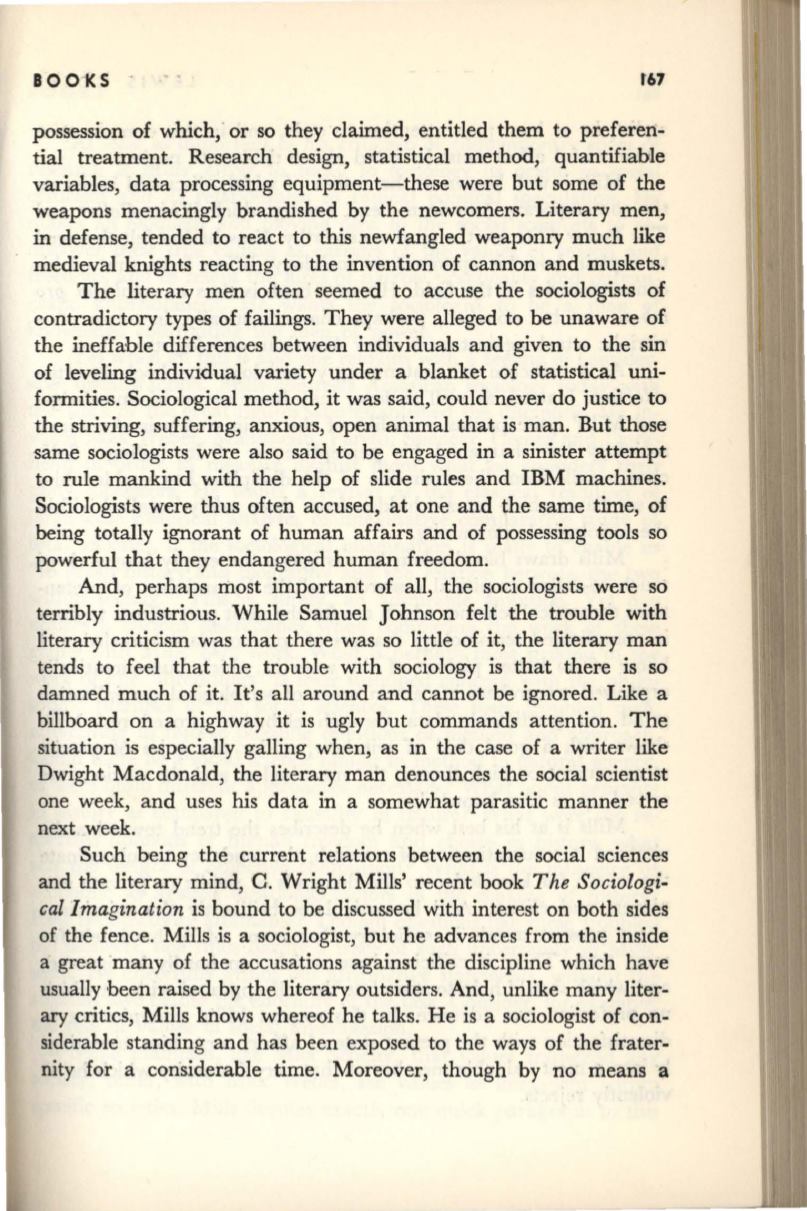
1001(S
r67
possession of which, or so they claimed, entitled them to preferen–
tial treatment. Research design, statistical method, quantifiable
variables, data processing equipment-these were but some of the
weapons menacingly brandished by the newcomers. Literary men,
in defense, tended to react to this newfangled weaponry much like
medieval knights reacting to the invention of cannon and muskets.
The literary men often seemed to accuse the sociologists of
contradictory types of failings. They were alleged to be unaware of
the ineffable differences between individuals and given
to
the sin
of leveling individual variety under a blanket of statistical uni–
formities. Sociological method, it was said, could never do justice to
the striving, suffering, anxious, open animal that is man. But those
same sociologists were also said to be engaged in a sinister attempt
to rule mankind with the help of slide rules and IBM machines.
Sociologists were thus often accused, at one and the same time, of
being totally ignorant of human affairs and of possessing tools so
powerful that they endangered human freedom.
And, perhaps most important of all, the sociologists were so
terribly industrious. While Samuel Johnson felt the trouble with
literary criticism was that there was so little of it, the literary man
tends to feel that the trouble with sociology is that there is so
damned much of it. It's all around and cannot
be
ignored. Like a
billboard on a highway it is ugly but commands attention. The
situation is especially galling when, as in the case of a writer like
Dwight Macdonald, the literary man denounces the social scientist
one week, and uses his data in a somewhat parasitic manner the
next week.
Such being the current relations between the social sciences
and the literary mind, C. Wright Mills' recent book
The Sociologi–
cal Imagination
is bound to be discussed with interest on both sides
of the fence . Mills is a sociologist, but he advances from the inside
a great many of the accusations against the discipline which have
usually been raised by the literary outsiders. And, unlike many liter–
ary
critics, Mills knows whereof he talks. He is a sociologist of con–
siderable standing and has been exposed to the ways of the frater–
nity for a considerable time. Moreover, though by no means a


